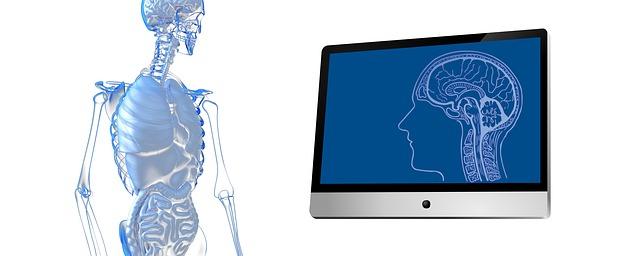
The digestive system is a complex and fascinating part of the human body that is crucial for our overall health and well-being. It plays a vital role in breaking down food, absorbing nutrients, and eliminating waste. To truly understand the basics of the digestive system, it’s important to first take a closer look at how this intricate system works.
The digestive system encompasses a series of organs that work together to process the food we eat. These organs include the mouth, esophagus, stomach, small intestine, large intestine, and liver. Each organ has a specific function that contributes to the overall process of digestion.
The process of digestion begins in the mouth, where food is chewed and mixed with saliva to help break it down into smaller pieces. Saliva contains enzymes that start the digestion of carbohydrates. Once food is swallowed, it travels down the esophagus and into the stomach.
The stomach is a highly acidic environment that serves as a sort of “mixing bowl” for food. It releases enzymes and acids that break down proteins and kill harmful bacteria. From the stomach, food travels to the small intestine, where the majority of nutrient absorption occurs.
The small intestine is lined with tiny finger-like projections called villi that increase the surface area for absorption. Nutrients such as carbohydrates, proteins, and fats are broken down into smaller molecules and absorbed into the bloodstream through the villi. From the small intestine, undigested food particles move on to the large intestine.
The large intestine is responsible for absorbing water and electrolytes from the remaining food particles. The colon, which is part of the large intestine, also plays a crucial role in the formation and elimination of waste. Finally, waste is passed out of the body through the rectum and anus.
In addition to these organs, the liver and pancreas also play important roles in the digestive system. The liver produces bile, which helps to digest fats, while the pancreas secretes enzymes that aid in the digestion of carbohydrates, proteins, and fats.
Understanding the basics of the digestive system is important for maintaining good health. When the digestive system is not functioning properly, it can lead to a range of health issues such as indigestion, bloating, constipation, and diarrhea. To keep your digestive system healthy, it’s important to eat a balanced diet rich in fiber, stay hydrated, exercise regularly, and avoid excessive alcohol and caffeine consumption.
One of the key factors in maintaining a healthy digestive system is gut health. The gut, also known as the gastrointestinal tract, is home to trillions of bacteria that play a crucial role in digestion and overall health. These bacteria help to break down food, absorb nutrients, and protect against harmful pathogens.
When the balance of bacteria in the gut is disrupted, it can lead to gut dysbiosis, a condition in which harmful bacteria outnumber beneficial bacteria. This imbalance can result in digestive issues such as bloating, gas, and diarrhea, as well as more serious conditions like irritable bowel syndrome (IBS) and inflammatory bowel disease (IBD).
To support gut health, it’s important to include probiotic-rich foods in your diet such as yogurt, kefir, sauerkraut, and kombucha. Probiotics are beneficial bacteria that help to restore balance in the gut and promote digestion. Prebiotic foods, which contain fiber that nourishes beneficial bacteria, are also important for gut health.
In addition to eating a healthy diet, there are other ways to support gut health. Managing stress, getting enough sleep, and staying hydrated are all important factors in maintaining a healthy digestive system. Regular exercise can also help to promote healthy digestion by stimulating the muscles of the gastrointestinal tract.
In conclusion, the digestive system is a complex and crucial part of the human body that plays a vital role in processing food, absorbing nutrients, and eliminating waste. Understanding the basics of the digestive system is key to maintaining good health and preventing digestive issues. By supporting gut health through a balanced diet, probiotic-rich foods, and healthy lifestyle habits, you can help to keep your digestive system functioning at its best. Prioritizing gut health is essential for overall health and well-being.

















